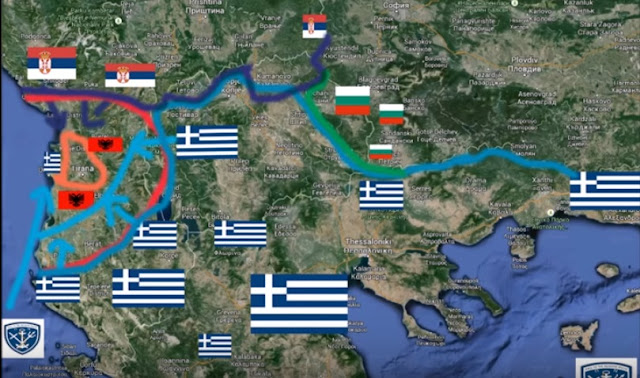Wednesday, May 3, 2017
Kotzias warns members of Organization of Islamic Cooperation to stay out of Greece’s domestic issues
He also warned against those (Albania, Kosovo and FYROM) who are “thinking and dreaming of destabilizing the Balkans” and changing the borders.
May, 04 2017 Author: Proto Thema
Foreign Minister Nikos Kotzias warned members of the Organization of Islamic Cooperation (OIC) on Wednesday to stay out of Greece’s domestic affairs saying whoever doesn’t abide with signed agreements between the EU and the OIC will “pay a price” at a European policies level.
“Any third party that intervenes in Greece’s internal affairs -something no country has the right to do- and does not implement the existing agreements between the EU and the OIC whereby one side does not have the right to intervene in the internal affairs of the other, will pay a price at European policies level,” the minister said.
He was speaking at the presentation of a book by former PASOK minister Nikos Sifounakis’ on the history of the Greek community of the Turkish islands of Gökçeada (known in Greek as Imvros) and Bozcaada (known as Tenedos).
“The time when some countries would condemn Greece falsely and based on lies put forth by a third country is gone,” he added.
Discussing the lessons learned from the story of the two islands, he said “you cannot succeed in a negotiation when the other side does not have a cost,” and mentioned as an example what is happening today with the OIC.
“Every year, Turkey goes [to the OIC] and raises the issue of a supposedly oppressed minority in Thrace and tries to raise an issue for the Dodecanese, claiming that there is a minority there as well. And we are speak with friendly countries who tell us ‘yes, yes’, but when it comes to voting they forget us,” he said.
The minister said the behavior of those countries can only have a cost in their relations with the European Union, as there is an explicit agreement that one organization cannot interfere in the domestic affairs of the other.
He also warned against those who are “thinking and dreaming of destabilizing the Balkans” and changing the borders. “Greece – and this also concern our northern neighbor – is firmly in favour of stability in the region. We are firmly I favour of unity in FYROM – we are the only ones who didn’t interfere even today in its domestic affairs – and we will defend its existence,” he stated.
“We are no longer in the mid-war period but in an era where there’s stability which requires stability in international rules and in the implementation of international relations, but above all, it requires great respect towards borders.”
Commenting on recent comments by Turkish President Recep Tayyip Erdogan who questioned the Lausanne Treaty he said “we often forget that prior to its violation, there was its non-application [of the treaty]”, which he said is the reason why, whenever Turkey brings up the issue of international treaties, Greek diplomacy reminds it about its own violations in the islands of Gökçeada and Bozcaada.
“The violations and the policy of highlighting them do not just concern Imvros and Tenedos. It concerns the defence of international treaties and international law” in terms of self-government of the indigenous population, but also the measures for policing the islands.
“All these things were violated and the violation started with a panic which is a bad consultant in foreign policy. Tenedos was surrendered before the Lausanne Treaty was even ratified by the parliaments of Turkey and Greece. In other words, it was not handed over to the locals, that is, the Greek majority, but was handed over to the Turkish army,” he said.
Concerning Greece’s responsibility, Kotzias spoke of “negligence which resulted from panic” with Greece not demanding the implementation of the Lausanne Treaty with which the country had made concessions by necessity, due to the great military defeat.
“One must never make foreign policy [decisions] in conditions of panic and insecurity and has to talk little and think more and ensure that nothing falls under the table,” he added.
Commenting on the book, he described it as a case study “of great value and importance for history in general” but also for people and Greek-Turkish relations, as well as international law and geopolitical games.
Subscribe to:
Post Comments (Atom)

No comments:
Post a Comment